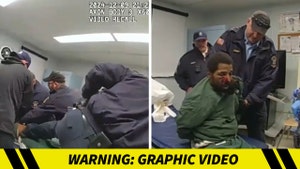FCC's Indecent Proposal
That the Federal Communications Commission would issue a momentous split decision on what exactly constitutes 'indecent speech' on Election Day turns out to be most fitting. For as George Orwell once said, "If liberty means anything at all, it means the right to tell people what they do not want to hear."
Unfortunately, Hollywood likely didn't want to hear any of what the commission decided, because mixed guidance is almost worse than no guidance at all. It makes producers crazy with rage, and networks quiver with fear.
What happened, exactly?
The Associated Press said it best, with a succinct headline "FCC says swearing on TV is OK -- sometimes."
Or as the Hollywood Reporter explained,
"In its decision, the commission decided that language used by Cher and Nicole Ritchie during the 2002 and 2003 Billboard Music Awards was indecent and profane, but decided that similar language used in a 2004 episode of "The Daily Show With Jon Stewart" wasn't indecent because the program is a news show. In another decision involving several episodes of "NYPD Blue," the commission threw out its earlier decision ruling that the complaint was improperly filed.
Decidedly simplistic in its reasoning, the decision overlooks the context of a word in favor of applying a weird linguistic hierarchy that holds the scatological below the sexual when it comes to judging what's indecent. And it applies different standards for news and entertainment programming.
For instance: Theoretical "bullshit" is OK; actual "bullshit" is not.
Per the AP, the FCC again ruled against a December 10, 2003 broadcast of the Billboard Awards, in which The Simple Life star Nicole Richie said: "Have you ever tried to get cow shit out of a Prada purse? It's not so fucking simple."
By contrast, in the case of a December 13th 2004 broadcast of CBS' "Early Show," in which a 'Survivor' cast described a fellow contestant as a 'bullshitter' the FCC reversed itself and ruled the speech acceptable, but only because it was on a newscast.
Despite his voting for the reversals, FCC commissioner Jonathan Adelstein seemed to understand all of this is predicated on fundamentally flawed reasoning. Wrote Adelstein,
"The consequences of this new policy reveal its lack of logic...When the commission determines a national network broadcast violates our national community standards, we will only fine the local station that has a complaint filed against it by a viewer in its media market. Although our obligation is to enforce the law to protect all children, we will only fine a local station that has the misfortune of being in a market where a parent or an adult made the effort to complain."
Also on the endangered species list of TV obscenities: "Dickhead."
In several episodes of the ABC police drama "NYPD Blue," that aired between Jan. 14 and May 6, 2003, one character called other a "dick" and, in another instance, "dickhead." FCC chairman Kevin Martin said those complaints were dismissed, but "solely on procedural grounds and they were not decided on the merits."
Given fractious the state of American politics and the unrelentingly negative tone of political ads, there's clearly no shortage of dickheads making headlines. Happily for reporters, if you want to call someone a dickhead, the only safe place to do it appears to be on the news.




